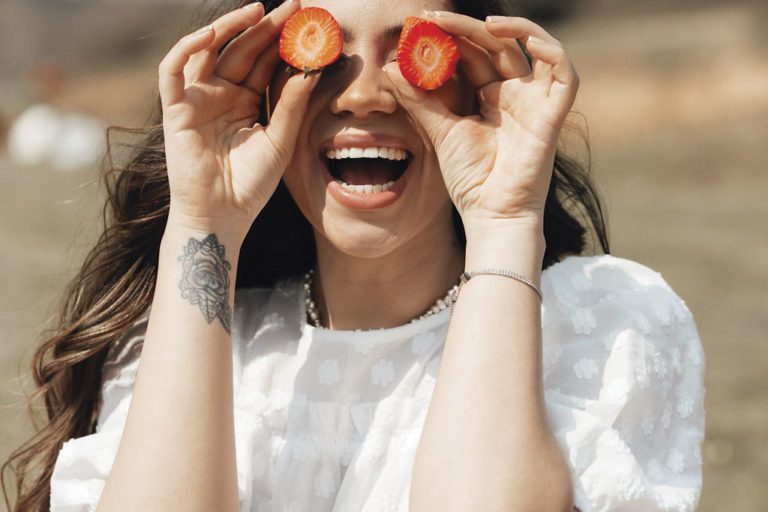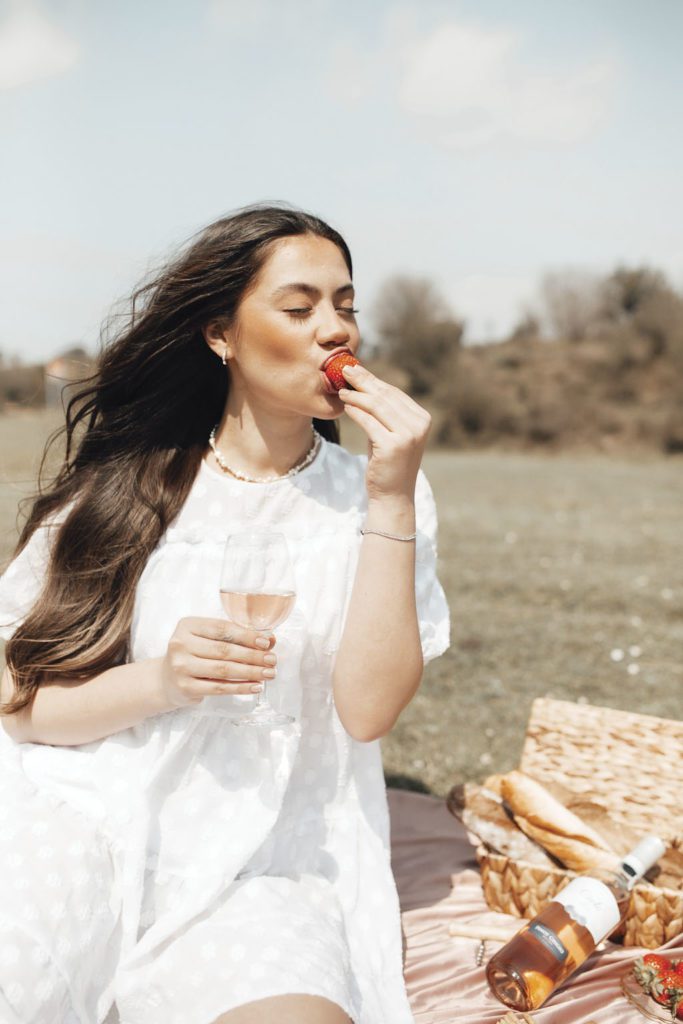HEALTHCARE
The inner dialogue

WORDS: Karla Gilbert PHOTOGRAPHY Supplied
Changing food habits can be extremely difficult. For most people, food is more than just fuel. It holds a potent emotional chain anchored to our ankles. Finding the key and unlocking the chain is 100 per cent of the battle.
DOES eating fish and chips by the ocean hold childhood memories? Does having a bag of lollies bring flashbacks of fun times with friends? Does eating chocolate-filled croissants take you back to the Amalfi coast or corner store ice-creams and times you’ve spent on summer holidays?
These are all really common examples of how food is related to positive experiences and memories. Especially during times of stress, tiredness and anxiety or when we are feeling low, we have a tendency to gravitate towards recreating these feelings to pep ourselves up.
Without even realising it, our mind loves to chase things that make it/us feel good. Memories are the first port of call, with the hormone dopamine having a lot to answer for. Aside from food, alcohol, compulsive shopping, overexercising, drug abuse and even addictive social media appraisal all begin the same way. What began as a conscious decision (and gave way to a positive experience) now numbs the decision-making process as the brain relies on and chases memories and feel-good hormones. For this reason, at any time of your life when the penny has dropped, when you wish to upgrade your wellbeing and health, simply following a ‘diet’ has short-lived results.
A common theme I hear when speaking with clients is that their parents used food as a form of comfort or reward during their childhood. Maybe it was eating crisps in front of the television at night (de-stressing, connection), a lolly after swim class (reward) or ice cream while you were feeling sad (comfort). These mental biases formed and modelled during childhood encourage decision making to be based on your deepest happiest memories.
Eating a plate of beautifully coloured roasted vegetables topped off with roasted pine nuts and garlic aioli either appeals to you or it doesn’t. Imagine you are faced with the choice of creamy pasta or a vegetable-based dish. Which one would you choose? That’s right, the one that has the greatest pull towards positive memories for you. Fortuitously, you may favour the vegetable dish over time if there is an awareness connected to how it makes you FEEL after eating, as new memories support your goals of losing the desired weight.
A lot of how we decide on ‘fork in the road moments’ throughout life is driven by our self-identity and belief system – the stories and rules we abide by to uphold ourselves. Again, these can be positive (I don’t have a sweet tooth) or negative (I have a massive sweet tooth) but whatever they are, they are rules that were formed through lived experiences.
To challenge the process of making changes to your food habits, it is helpful to not only dive into mental scripts we have running in the background of our mind but to be clear on what your personal values are. What is the reason you want to lose weight, get fit, have more energy or feel good in your skin and how does this relate to your belief and what matters to you? Having this will provide ammunition at times of low motivation and when you feel you are gravitating towards old patterns.
Some helpful questions you can ask yourself in forming your statement may include:
I want to lose weight because …
So that I can ….
If I keep going on this way my future will look like ….
Others around me will benefit from me losing weight because …
Allow your statement to be unique to you, to honour your goals and be powerful enough to drive you forward. I know it’s far from easy to give up some of your favourite foods, ones that are not serving you well. It is a complex conversation to have with yourself but it is also a powerful opportunity to move away from food being driven by emotions to being driven by satisfaction to thrive.
Karla Gilbert OAM is a former professional athlete who helps individuals and corporations as a nutrition and health coach. Visit www.karlagilbert.com.au for more information on her health coaching, her eBook, Naked Habits, and healthy recipes.










